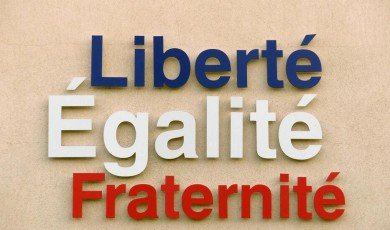
Democracy thrives when every voice counts. In the realms of open elections and participatory governance, effective communication forms the bedrock of inclusivity. However, in multicultural societies where multilingualism is the norm, language barriers can inadvertently exclude certain groups from fully participating in the democratic process. Ensuring equal access in democracy through interpretation services isn’t just an ideal—it’s a crucial necessity that empowers all citizens to engage actively in their nation's future.
Understanding the Language Gap in Elections
Free and fair elections rely on the clear exchange of information between voters, officials, and candidates. But what happens when a large segment of voters cannot access information about electoral processes, party platforms, or their rights simply due to a lack of proficiency in the official language? This language gap can have far-reaching consequences, like reduced voter turnout, inadvertent disenfranchisement, and the undermining of democratic values. In nations like France, where a notable proportion of residents speak another language at home, closing this gap becomes imperative.
Bridging this divide is possible with the integration of specialized interpretation services throughout all stages of the electoral process—from campaign events and public debates to voter registration and polling stations.
The Power of On-Site Interpreting
At the heart of inclusive electoral participation is the ability to interact and engage in real-time, multilingual environments. On-site interpreting ensures that voters who are more comfortable in languages other than French receive the necessary support right where the action is—at polling locations, town halls, and live debates. Professional interpreters present on-premises can carefully convey questions, explanations, or concerns, ensuring clarity for both voters and election staff.
This physical presence helps bridge not only the linguistic gap but also builds trust, as voters see their needs addressed with a personal touch. In dynamic environments prone to fast-paced discussions or sudden questions, on-site experts ensure that nothing gets lost in translation.
The Accessibility of Over the Phone Interpreting Services
Sometimes, in-person services aren’t logistically feasible, especially in remote or less densely populated regions. Here, over the phone interpreting services can be a game-changer for democratic inclusion. These services empower electoral commissions, campaign teams, and help desks to immediately connect with professional interpreters of a wide array of languages—24/7.
By dialing in to a multilingual hotline, voters can ask questions about their polling location, required documentation, or the voting process in a language they understand best. As a result, over the phone interpreting services greatly enhance accessibility without geographic limitations, supporting the foundational tenets of fair access.
Remote Interpreting Services and Digital Democracy
The digital transformation of society has introduced new ways for citizens to interact with electoral information and processes. In this evolving landscape, remote interpreting services are increasingly vital. These services leverage secure video and audio technologies to connect interpreters and participants from anywhere—be it a voter’s home, a local municipal office, or an online townhall meeting.
Remote interpreting allows election officials to scale up their support during peak periods, like early voting or national election days, and provide real-time assistance across vast distances. It also makes civic events accessible to people with limited mobility or those living in isolated communities, further upholding the principle that democracy leaves no one behind.
Best Practices for Electoral Authorities
- Assessment of linguistic needs: Map out the demographics of your electorate to identify primary and secondary languages spoken.
- Preparation and training: Ensure poll workers receive multilingual support materials and training in working with interpreters.
- Public awareness: Use websites, social media, and local organizations to inform voters about available interpretation services, such as this informative channel.
- Feedback and improvement: After each election cycle, solicit feedback from voters and interpreters to continuously enhance service accessibility and quality.
Integrating robust interpretation solutions into democratic processes not only mitigates barriers but also strengthens trust between voters and institutions. By demonstrating a commitment to linguistic inclusion, electoral bodies can expect higher engagement and a more representative turnout.
Technology, Community, and the Road Ahead
As France and other democracies grapple with the challenges and opportunities of globalization and migration, language diversity is set to remain a persistent feature of civic life. The expansion of on-site interpreting, over the phone interpreting services, and remote interpreting services will become indispensable to effective, fair, and modern elections.
Governments and civil society organizations must collaborate to secure funding, recruit qualified interpreters, and utilize digital platforms to bridge the language gap. They should look to best-in-class solutions—whether for in-person events, telephonic assistance, or remote video platforms—to guarantee seamless support throughout every electoral phase and avoid the differences from translating. Learn more here: Interpretation and Interpreting Services: A Complete Guide








